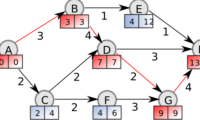
Land acquisition issues appear to be a growing factor in the delay of millions of dollars of infrastructure and industrial projects in India. Officials are pushing new legislation to boost compensation to landowners, but concerns over cost impacts may keep the provisions bottled up in the country's parliament.
A recent study by the Ministry of Statistics and Program Implementation says the proportion of federal projects running behind schedule increased to over 53% in December 2010 from 34% in March 2007. Further, while environmental and funding issues remain major obstacles, procuring land is becoming a key challenge for more projects.
India's plan to boost the number of regional airports to nearly 500 from 130 by 2025 is running into the problem of land acquisition. One regional operator, Regional Airport Holding International (RAHI), has a $690-million program to develop the first 15 of 99 new regional airports by that date, but land disputes already delayed the first two projects in the southern state of Karnataka by two years. The state government was forced to step in to acquire needed parcels for the airports.
"In most infrastructure projects, land acquisition is usually the reason for delay since every parcel of land needs to be individually identified and owners relocated and compensated," says Umesh Kumar Baveja, RAHI chairman. "The situation with the airport projects is no different. The government understands the need for efficient air access to bolster an economy and give regional communities an advantage."
Land acquisition remains a hurdle in the state government's plan to build the Navi Mumbai Airport, valued at about $2 billion, even as its draft master plan is being completed and project bids are soon to be released. Of 2,020 hectares of land needed for construction, about 424 hectares of private land still need to be acquired.
In India's parliament, new legislation was introduced this year that proposed higher compensation for landowners to cover "emotional loss," says the rural development minister, Jairam Ramesh.
Chandrajit Banerjee, director general of the Confederation of Indian Industry, wants to see provisions added to the bill that would digitize land records, set new land zoning rules and create "land bank" corporations to facilitate parcel acquisition for industrial use.
But opponents are concerned the proposal would cause a dramatic rise in project costs. For rural landowners, the compensation amount would be fixed at six times the market value of the land and other assets. In urban areas, it would be at least twice the market value of lost assets.



